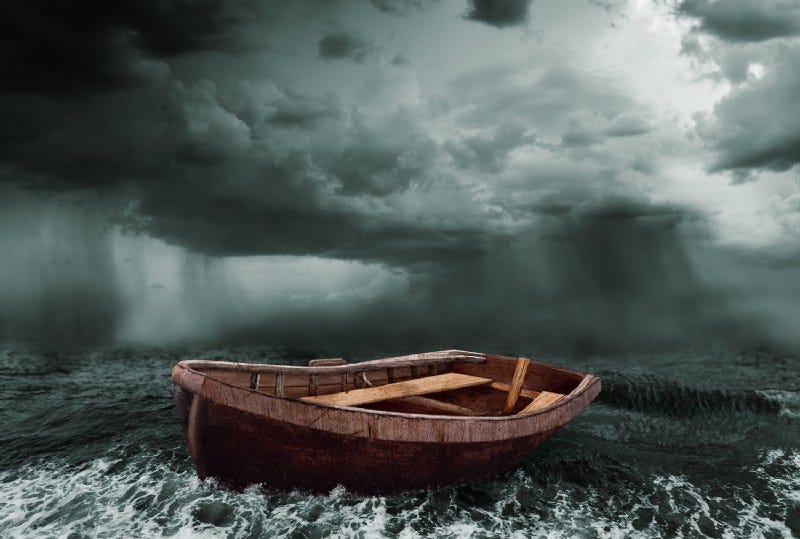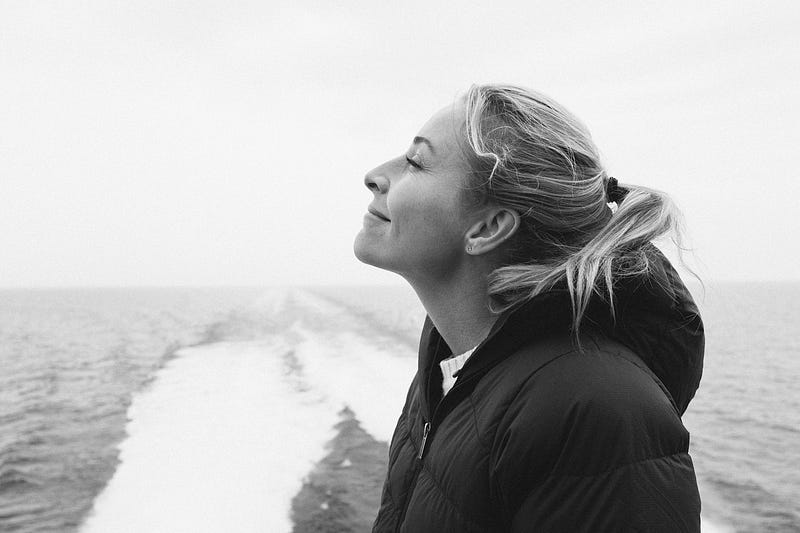Preface
Living Unfixed
May of 2014, I was struck by an opening car door and flipped over my bicycle handlebars, but a pelvic fracture and two months of immobilization were the least of my unraveling. Life pushed me off the deep end. During bedrest, I learned that my deceased dad wasn’t my biological father. A few months later, my brain rewired itself to perceive solid ground as liquid. When I tried reentering the world with my new, wobbly perception, it was clear that my career was also going for a dive. Weary of chasing cures and running away from my new sense of self, I eventually had to go back to the beginning — to the child’s longings, the teenager’s compulsions, the young woman’s disillusionments — to unwind the history of my identity and face the mess and the grace of living an unfixed, unpolished and unplanned life.
Writing this memoir was initially a place to get everything down before the dumpster in my brain got greedy. About fifty pages in, I didn’t want to stop. I needed to investigate further. I needed to understand my relationship with my body, especially the compulsive continuum of pain and perfection and how these threads wove back into my early development. I had to face a sea of confusion, regret and disorientation. Every day I am constantly aware of gravity and my new, uncertain relationship to it. I don’t recall ever feeling so unstable. But I also feel a growing sense of peace with being exactly who I am. How can these two states exist simultaneously? Living this story has brought me closer to the father that raised me and my biological father’s family, but writing this story has brought me closer to myself. There have been unwatered seeds sitting dormant inside me for over forty years. This story is the beginning of the first rainfall. Sprouts are emerging and the light of self-reflection, humor and grace are encouraging them to grow.
I can’t separate the paralleling themes of the paternity news with the onset of relentless dizziness because they overlapped in timing. My literal sense of self dissipated as my relationship to my body, family, career and community changed within a few short months. Some call this the dark night of the soul or midlife crisis. Because there is terminology for it means I’m not alone. The stories are different but we all know what it feels like to desperately hold onto the last skinny roots of a former identity as the entire cliff falls away. Not until life landed me at ground zero was I able to be stripped bare and silent enough to hear the voice that lay dormant within. It is my hope that this story illustrates the universal plight of being human, always navigating with one foot in the light and another in the dark. To trust the one in the dark, listen to her, and gently coax her into the light may be the best bet we have in finding a sense of intimacy, purpose and fulfillment in our own messy stories.
The physical challenges, while the most tormenting, also grounded and provided insight for everything else. We all experience pain. We can turn to social media or Dr. Google and learn about miraculous cures and salvation stories but my story may not resonate for those looking for victorious arcs. This is for the “unchosen ones.” This story is for the ones who have felt abandoned by Western medicine, natural medicine, gods, goddesses, and green drinks. Our culture is obsessed with fixer upper stories. And there are some incredible ones out there. For whatever reason, this hasn’t been my story. I have spent too much time and money wishing it were, so now I’m committed to learning to live well even when my body isn’t. Pema Chodrin says it all in the title of her book “The Wisdom of No Escape.” At the young age of 19, this book sent my brain into summersaults and I have bought copies for over a dozen people since then.
The idea of embracing “what is” was not part of the self-help, self-actualization dogma I had been raised in. Learning to bear witness, without judgement, to my own suffering has cultivated a patience and tolerance for the human condition that I never had before.
My life hasn’t followed a traditional path and so I haven’t been able to hide in the usual suspects of what it means to “live well.” In hindsight, there are times when I wish I had followed the rule book. It would be easier to open up a social media account and feel like somehow I belong—the baby photos, the workplace camaraderie, the wedding shots, the experiences that come with living in a body unimpeded by the constant tethered awareness to muscle and bone. But just below the veneer of “the perfect life” we all suffer and the list of reasons really isn’t that long.
Fear. Loneliness. Loss of control. Pain. Longing. Banishing these villains from my doorstep only worked for so long before I had to open the door and invite them in for tea.
I want this book to give readers the courage to reflect honestly about their own dark chapters and instead of prioritizing getting to the next chapter, inching ever so gently toward embracing the one they’re in. Buried within my greatest anxieties and pain during the past eight years there has always been an unconditionally loving friend. I don’t think I could have trusted her, let alone even find her, had I not been first willing to simply let everything else go. Being willing (and it did take a force of “will”) to embrace my ugliest, most rejected self, I found the self who never abandons. The self who is always still, patient, loving and inclusive. And she is right here in my own awareness. I am discovering the ride to be so much less frightening knowing that no matter what happens in life, I have a refuge. A refuge of awareness that can grow in strength with practice just like any other muscle in my body.
This memoir is for those who feel as if curve balls are all hurled in their direction. Those dealing with death of a loved one. Those who have chronic illness. Those who are unfixed. If my neurological state could’ve been fixed, my nightstand would probably be filled with more Tony Robbins than Pema Chodrin. William Blake says it well in his Auguries of Innocence. Every Night & every Morn / Some to Misery are Born / Every Morn and every Night / Some are Born to sweet delight. Maybe some are born with a magic wand and they are here to learn about the boundlessness and possibility within one life. Others are born with a mirror and must find the magic and possibility within the confines of what they’ve been given. These are the ones that will resonate most with my story. I talk about the idea of being “unfixed” and I witness the discomfort it elicits in some. We resist not having a future self or future life that we can try to attain. Some even build their entire identities around it. And I get it! I was this person. But for those who don’t have this choice express a sense of relief when the chase finally stops.
Life emerges right where you are and not where you think you should be.
The Dear Charlie letters in this story were written present day, not when they are dated. As I discovered more and more about my biological father, I wanted all the parts of me to relate to him — the innocent child, the anxious teenager — I wanted to feel what it might’ve been like to know him during various phases of my life. Writing from younger perspectives gave me a freedom to express longings that had never previously surfaced and weave those into a fuller experience of my current self. It also helped me reflect on stories I’ve learned about him and lean into caring for and developing compassion for someone I never knew.
In addition to the letters, I also began “responding” to Charlie’s poetry — I so clearly am a product of his DNA, his temperament, his affinities — but I found myself longing to touch the “nurture” part of our relationship as well. Playing a game of “call and response” with his poetry has been a playful, intimate (albeit imaginary) exchange where I can reflect on his choice of words, his rhythm, alliterations, the details of a craft he studied and honed throughout his short life. I cannot claim to have any of the training or skill he had with poetry so engaging with him in this way makes me feel like his kid — the eager, pig-tailed child, the anxious, bun-headed dancer, the young adult longing to know her purpose. Through his stanzas, his imagery and even his choice of punctuation, I become his student—nurtured by his life’s work and in turn, nourishing me in my own.






I loved this:
The idea of embracing “what is” was not part of the self-help, self-actualization dogma I had been raised in. Learning to bear witness, without judgement, to my own suffering has cultivated a patience and tolerance for the human condition that I never had before.
This is seldom said by anyone but within it there is immense wisdom and the scope for actually letting the universe heal you. Thank you!
So happy to have discovered your writing and look forward to reading more about your life. Love these words: “Others are born with a mirror and must find the magic and possibility within the confines of what they’ve been given. These are the ones that will resonate most with my story.” I resonate with your story, and also write about the challenges in my life (especially living with depression, anxiety, and financial insecurity) here: https://wendigordon.Substack.com . I had to reach the point where I wanted to die to be able to rediscover my authentic self and listen to her voice above others’.